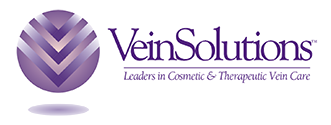Did you know that approximately every 33 seconds someone dies from heart disease and that…
Is there a link between leg health and heart health?
What can your legs say about your heart health? If your legs are both feeling and looking good, then you might not ever think to make a connection. However, legs that are swollen or achy, and colored with purple or blue bulging varicose veins, could have a negative effect on your heart and circulatory system.
What is the connection between the legs and heart?
Veins in the legs have the important job of pumping blood from the lower parts of the body back up to the heart. It is not an easy task. If those veins, or the tiny valves inside them, become weakened or damaged, the blood won’t pump as efficiently or be as oxygen-rich as it should be to maintain optimal circulation and blood pressure. This could have a negative effect on your heart.
Leg conditions that our team of board-certified vein specialists treat routinely that could affect your circulatory system and cardiovascular health include varicose veins, venous insufficiency, and deep vein thrombosis (or DVT).
What are varicose veins?
Varicose veins form under the skin as blood pools in veins when there is difficulty pumping it back up to the heart. More than 35% of people in the United States suffer from these thick, ropey structures (Society for Vascular Surgery). They can be painful and cause chronic aches, swelling, and fatigue in the legs if not treated properly.
VeinSolutions offers several effective options for varicose vein removal including endovenous ablation andminimally invasive vein surgery.
What is DVT?
Deep venous thrombosis (DVT) occurs when blood thickens and becomes a solid mass, or clot, typically forming in the legs. DVT can be dangerous, and even life threatening, if it breaks off and travels up to your lungs or heart and causes a blockage.
Signs of DVT include a feeling of heat, tenderness or redness appearing on the leg or calf. Surgery or trauma to the legs, and sitting for prolonged periods of time such as on an airplane, are chief risk factors for developing DVT.
If you suspect you are suffering from DVT, seek medical help immediately, as blood-thinning medications or surgery in extreme cases may be needed to dissolve the clot.
What is venous insufficiency?
Chronic venous insufficiency is a serious condition that causes painful swelling in the legs, and sometimes skin discoloration or non-healing sores.
The swelling could be a result of poor circulation, but it could also be an indication of something more serious such as congestive heart failure or kidney failure. If swelling is persistent, it is best to get evaluated to rule out anything serious.
If your physician determines you are suffering from venous insufficiency, they might recommend moving more, avoiding prolonged sitting, and wearing compression socks to help manage the swelling, improve circulation, and ultimately better heart health.
Contact VeinSolutions for Your Consultation Today
At VeinSolutions, we can make sure your legs are looking and feeling their best. We are board-certified vascular surgeons and vein specialists skilled in both cosmetic and therapeutic treatments dedicated to enhancing your overall circulatory health.
To schedule an appointment with a vein specialist in Austin, please contact us here or call 512.452.VEIN (8346), or 512.501.4287 for our clinic in Georgetown, and 512.651.8420 for Kyle.



